Special Billboard Edition
Dear Forest Community,
We are pleased to announce the launch of our Special Billboard Edition!
For more than a decade - the collaboration between the UNECE Forestry team and the global forest community has resulted in 50 issues - a true testament to partnership and shared commitment.
This edition is different: we invite you to take a step back and get to know the UNECE Forest team - the people behind many of the stories and the upcoming FOREST 2025 meeting in Geneva from 4 to 6 November 2025.
The Special Edition also features contributions from across the forest community, including information on upcoming workshops, podcasts, webinars and new publications.
Together, let us continue our journey towards the Centenary Edition - strengthening collaboration and advancing our shared purpose along the way.
With warm regards,
The UNECE Forest and Bioeconomy Team
Current Highlights

The UNECE Committee on Forests and the Forest Industry (COFFI) was established in 1947 to support regional forest resource mobilization and stabilization. This mandate quickly evolved into its enduring mission: strengthening the forest sector and promoting sustainable forest management across Europe and beyond.
For over seven decades, COFFI, has been instrumental in serving as a vital forum for policy dialogue and knowledge exchange. Its notable achievements span crucial areas, including comprehensive forest data, forest products and trade, circular bioeconomy, forest landscape restoration, and the management of urban trees. This work has bolstered resilience and enhanced COFFI’s contribution to biodiversity, climate change mitigation, rural, and urban development.
As we look to the future, we eagerly anticipate new beginnings for COFFI on 1 January 2026. We are excited to continue our vital work with our dedicated delegates and experts, who are the very heart of our mission.
More information on COFFI's future avenues will be available at its annual meeting, FOREST 2025, in November 2025.
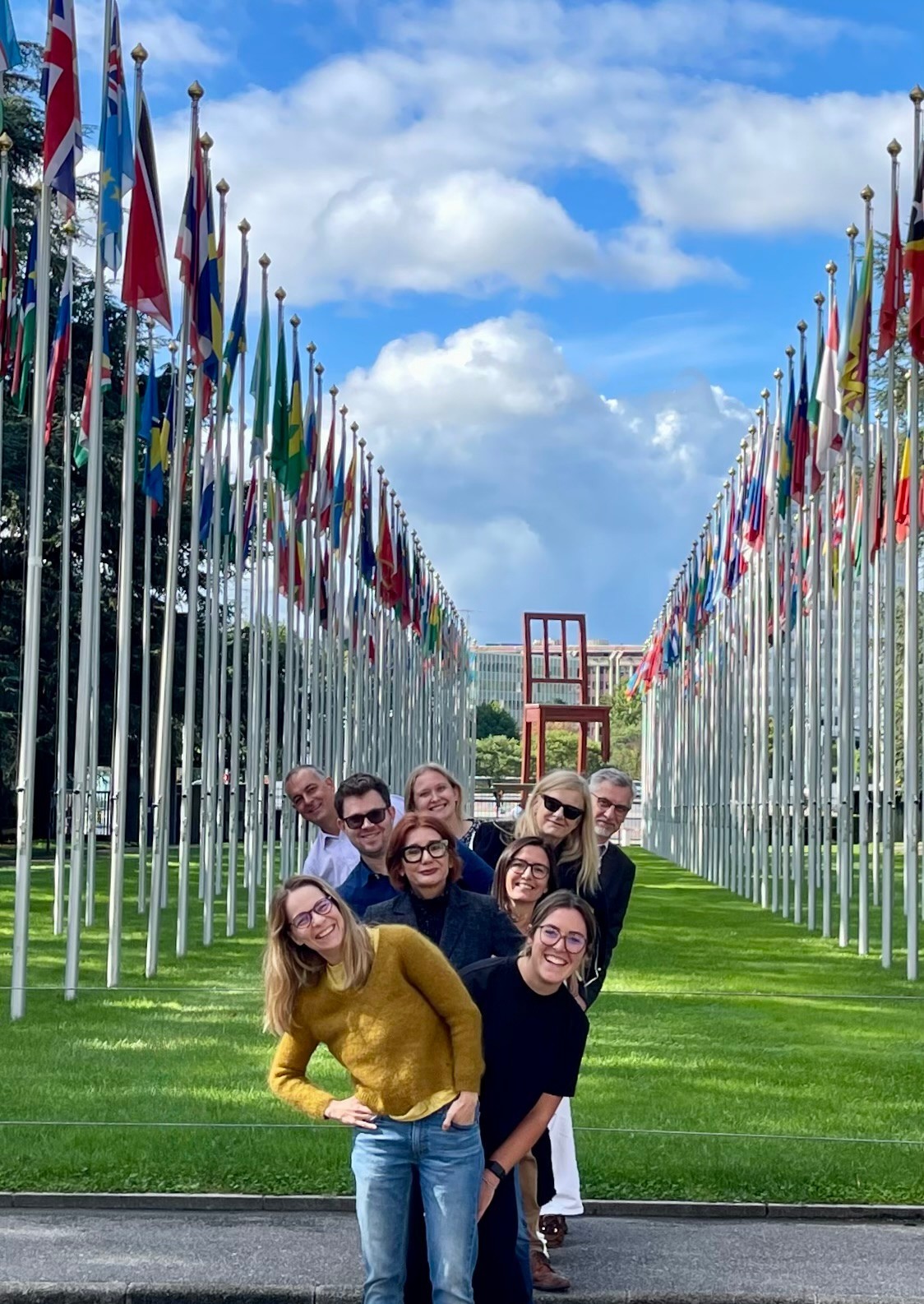
The UNECE Forest and Bioeconomy Section serves a region spanning North America, Europe, the Caucasus, and Central Asia - home to over 40 per cent of the world’s forests. We work closely with countries across this vast area to ensure that trees and forests, from southern drylands to northern taiga, and from rural landscapes to cityscapes, are managed sustainably.
Our mission is to support countries in making informed, evidence-based forest policies. We advance forest monitoring and sustainable forest management, promote the responsible use of forest resources, and foster the development of the forest-based bioeconomy, forest products, and their sustainable trade. We raise awareness of the essential benefits forests provide - including clean air and water, climate regulation, biodiversity protection, sustainable jobs and income, and contributions to public health and well-being.
Guided by the United Nations agenda, we envision a future where all trees and forests are healthy, diverse, and productive - delivering economic, social, environmental, and cultural benefits for present and future generations.
Our 83rd UNECE Committee on Forests and the Forest Industry (COFFI) - FOREST 2025 – session will take place in Geneva from 4 to 6 November 2025. The event will bring together experts and stakeholders to explore new forest arrangements, sustainable trade, innovations in forest products, boreal and urban forestry, key regional findings, the development of a central forest data platform, damage assessments, and inclusive forestry.
🌍 Join us at FOREST 2025! We look forward to welcoming you in Geneva.
UNECE Forest Section

How can sustainably grown wood replace fossil-based materials in our daily lives, such as textiles and pigments to cosmetics, paints, and plastics?
Under the auspices of FOREST 2025, the UNECE, in cooperation with the École des Ponts Business School, organizes a focus session on “Innovation processes for new markets” on 4 November 2025. The session opens with a keynote on drivers of innovation in the circular bio-based economy, followed by four case studies of innovative technologies (biorefinery and new materials) using wood co-products and residues – all offering alternatives to fossil-based materials.
For more information: here
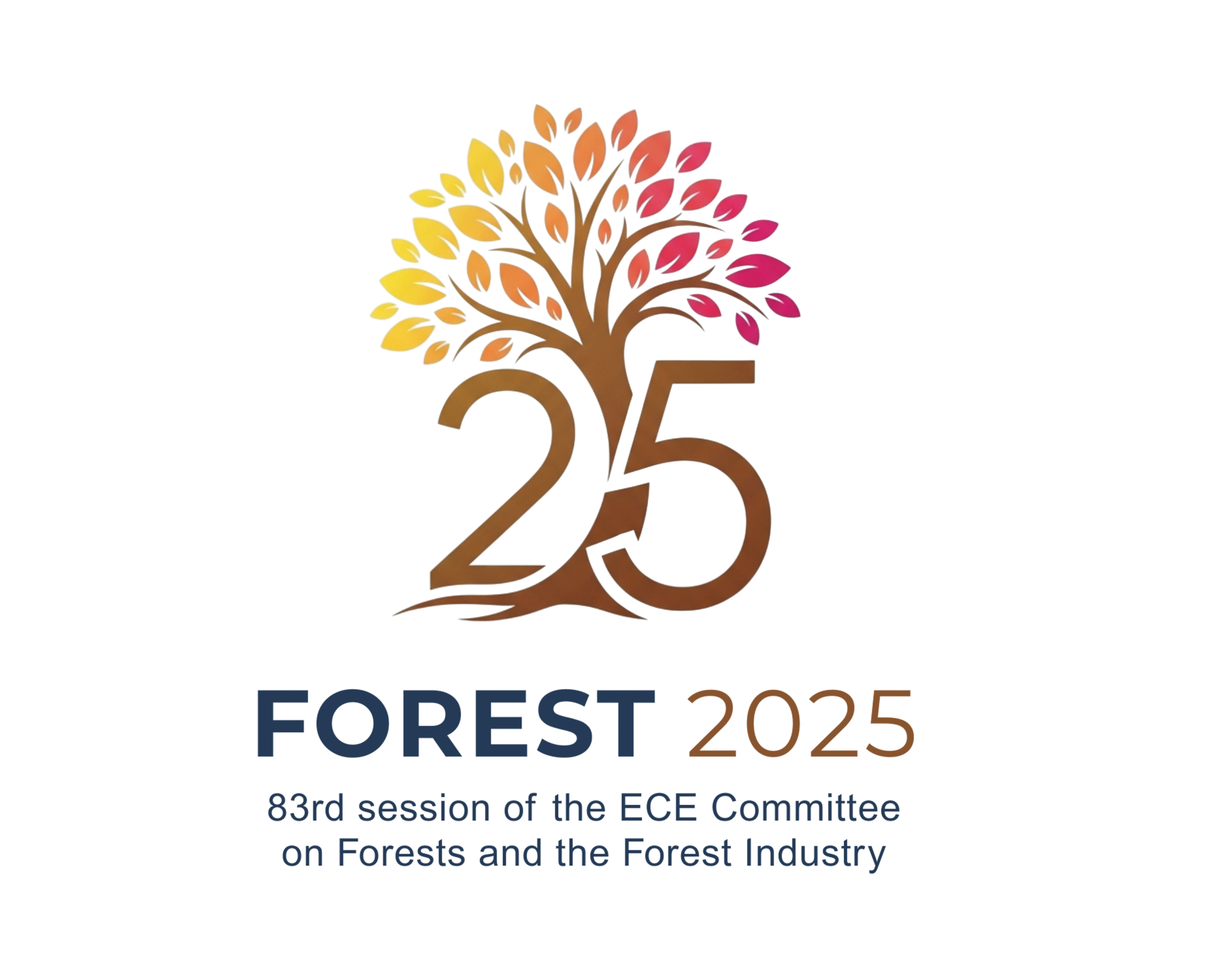
Climate change knows no borders, demanding cross-border solutions. The UNECE Teams of Specialists unite top experts in urban forestry, boreal resilience, forest monitoring, and sustainable forest products from around the world. Their collaboration builds the technical foundation and fosters synchrony - linking knowledge across countries and sectors into more coherent, efficient solutions.
The Teams will next convene at FOREST 2025 in Geneva, with dedicated workshops on 4–5 November to advance integrated, practical approaches for sustainable forest management.
For more information: here

Forest products are central to tackling climate change and advancing sustainable development. Yet, markets are shifting quickly, with new trade measures and tariff policies creating additional pressures on the sector. Understanding how these developments affect the bioeconomy - and ultimately the management of our natural resources - will be key to turning disruption into opportunity. This will be the focus of the FOREST 2025 discussions on 4 November, and you are invited to take part. Two sessions will feature expert panels and presentations exploring the transformative potential and innovation in forest products, and analysing how evolving market dynamics may unfold in the short and medium term.
For more information: here

On 6 November 2025, a workshop on circular non-wood forest product value chains and nature-based solutions in Central Asia and the Caucasus will bring together national experts in Geneva. The objective is to deepen understanding of non-wood forest products and foster their integration into intergovernmental processes on circular forest value chains and forest landscape restoration. The workshop will engage senior stakeholders and policymakers in developing strategic roadmaps to build political support, strengthen counterpart capacity, and shape project proposals that mainstream circular forest product value chains in the target countries.
For more information: here

Wood construction has proven highly successful due to its sustainability, carbon-storing properties, and efficiency. However, there is a pressing need to improve data on wood usage across countries to better track its environmental benefits, guide policy decisions, and ensure responsible forest management amid growing interest in decarbonizing the building sector.
During FOREST 2025, the Team of Specialists on Forest Products and Wood Energy Statistics and the Team of Specialists on Sustainable Forest Products will discuss and gather the expert input on whether such statistics are needed and feasible, and on how a statistical questionnaire might be structured and collected.
For more information: here

Forest Information Systems (FIS) can make operations more efficient, cut costs, and provide better data, ultimately improving forest ecosystem services and governance. To assist countries in developing their own FIS, the UNECE prepared a guide on this topic, which explains how these technological advances can be developed in an efficient, purposeful and effective way.
The guide gives an overview of FIS, describes different types and functions of FIS, analyzes their use in the forest sector, and details how they can improve modern policymaking. This guide will be presented at the 83rd session of the ECE COFFI, in Geneva, from November 4-6, 2025.
For more information: here

Representing 27% of all forests worldwide, boreal forests are the planet's terrestrial "second lung" after tropical forests. A recent study published by the UNECE provides a comprehensive overview of forests and the forest sector within the boreal biome and delves into the importance of boreal forests in environmental, social, and economic contexts.
The study finds that despite the importance of the boreal biome, there are significant gaps in knowledge about its forests, their role in sustainable development, and their future. The study and its key findings will be presented at the 83rd session of the ECE COFFI in Geneva.
For more information: here

Urban forestry is essential for addressing global challenges like climate change, biodiversity loss, and quality of life. However, its successful implementation depends on strong national policy frameworks, as local initiatives often remain fragmented and under-resourced. During the FOREST 2025 Session in Geneva, UNECE will present a Quick Guide on Scaling Urban Forestry with National Policy, which equips governments, planners, and partners with step-by-step strategies to integrate urban forestry into national frameworks. These strategies span policy development, legal reform, financing, capacity-building, community engagement, cross-sector collaboration, and digital innovation.
For more information: here
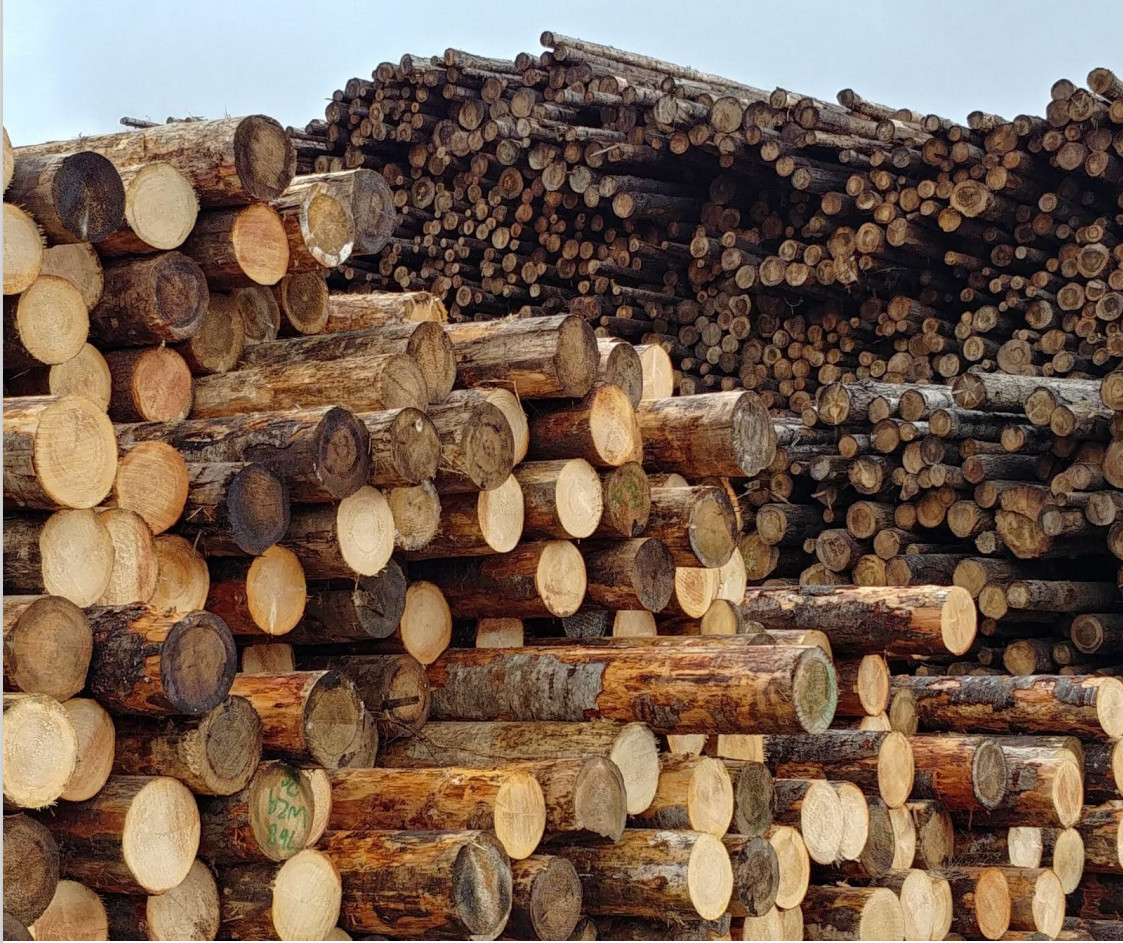
Our new successful format: “Forest Tracks: Country-Level Market Insights 2024/2025” was launched in 2025 and offers a comprehensive overview of forest- and forest product-related policies and market trends. The first edition covered Austria, Cyprus, Czech Republic, Estonia, Finland, Germany, Montenegro, Netherlands, Portugal, Slovak Republic, Slovenia, Sweden, Switzerland, Ukraine, the United Kingdom, and the United States, and has already been cited in several online articles. The next edition is planned for release in early 2026. Countries wishing to be featured are invited to submit their national country statements to the secretariat by the end of October 2025.
For more information: here

Urban and peri-urban forestry can directly advance the goals of the Rio Conventions - yet it remains largely absent from national strategies. The UNECE Quick Guide “Urban Forestry as a Rio Convention Delivery Mechanism” offers governments practical strategies to systematically integrate urban forestry into planning and reporting for the UNFCCC, UNCCD, and CBD, as well as the Paris Agreement, the Kunming-Montreal Global Biodiversity Framework, and the Land Degradation Neutrality agenda. By aligning urban forestry with these international frameworks, countries can unlock funding, strengthen national submissions, and deliver more resilient, equitable, and sustainable cities. The guide will be presented at the FOREST 2025 session in Geneva. For more information: here

Cities need effective tools to plan greener, healthier futures. At the FOREST 2025 session in Geneva, UNECE will present the pilot version of the Urban Forest Compass dashboard designed to help cities assess their urban forests, benchmark progress, and identify priorities for sustainable development. While the Compass is still under development, its accompanying questionnaire is already available for piloting. Cities are invited to map their current situation, including canopy cover, land ownership, stakeholders, budgets, and more. By contributing now, cities can help shape the first international framework for monitoring and guiding urban forest growth. Join us in building a practical, collaborative tool that will orient cities toward more resilient and sustainable urban forests. For more information: here
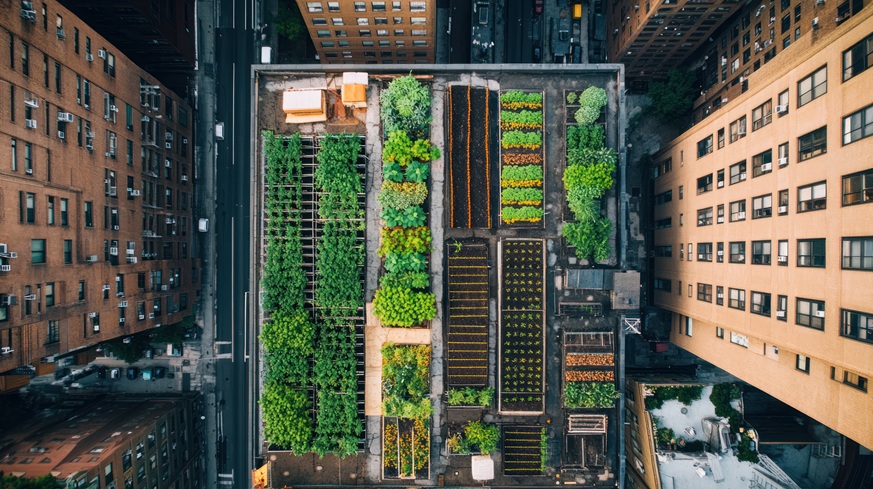
In 2024, more than 295 million people faced acute hunger, while 93 million were affected by climate-related disasters - two converging crises that demand unified solutions. Food-focused nature-based solutions (NBS) offer a powerful response: they embed food production into urban landscapes - through gardens, rooftops, and orchards - while cooling cities and enhancing biodiversity. The UNECE guide “Urban Resilience Through Nature” provides a professional, step-by-step roadmap for policymakers, planners, environmental managers, and stakeholders to plan, design, implement, and monitor these solutions effectively. It is a practical toolkit for building resilient, sustainable cities that harness the power of nature to secure both food and climate futures. The guide will be presented at the FOREST 2025 session in Geneva. For more information: here
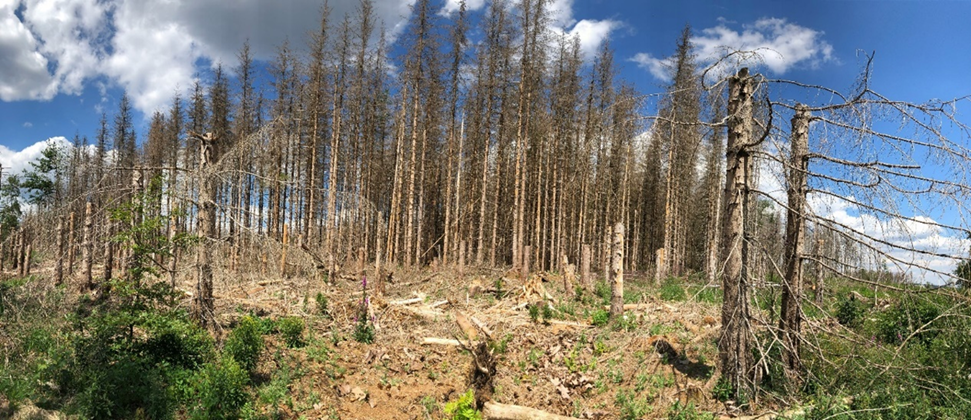
Forests are facing a multitude of different threats to their ecosystem vitality. Accurate and timely information on forest disturbance and damage is crucial for both regional and global efforts. As revealed by the recent UNECE study “Reporting on forest damages and disturbances in the UNECE region“, current reporting is hindered by inconsistencies in national monitoring systems, data availability, and timeliness. To address these challenges, the Team of Specialists on Monitoring Sustainable Forest Management developed a proposal for a refining the assessment and collection of forest damage data within the UNECE region. The proposal will be presented at the FOREST2025 in Geneva. For more information: here
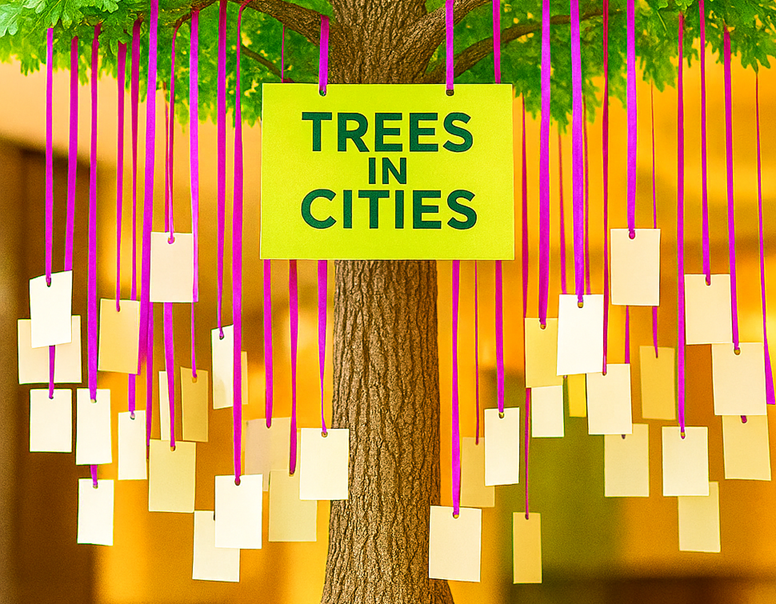
At the 5th meeting of the Forum of Mayors on 6-7 October, 41 city representatives pledged to plant over 2.6 million trees, showcasing leadership in urban nature solutions. Through initiatives like the Trees in Cities Challenge, the Trees in Dry Cities Coalition, and the UN Petite Forests Network, UNECE supports cities in creating greener, more resilient communities.
Pledges made at the Forum were symbolically added to a tree, which will travel to FOREST 2025, where attendees will also have the opportunity to contribute. As we look ahead, we encourage you to reflect on your city’s urban greening priorities. Consider a number of trees to plant and/or a project to share.
For more information: here
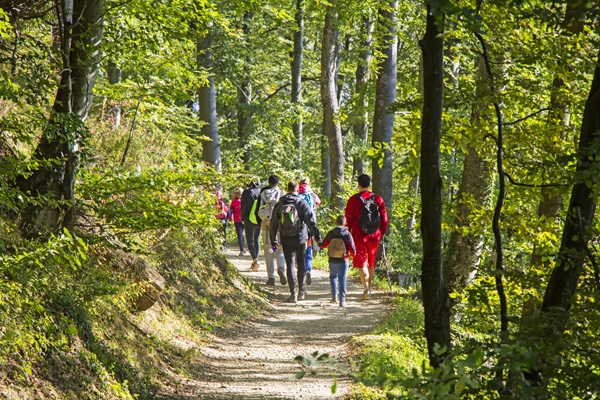
Youth leadership is emerging as a vital force in shaping the future of forestry. Across the globe, young professionals and students are increasingly taking active roles in advancing sustainable forest management, innovation, and policy dialogue. Their energy, creativity, and commitment are helping to drive progress in a sector facing complex challenges. Supporting and empowering youth in forestry is not only an investment in future leadership but also a key strategy for ensuring long-term resilience and relevance in the field. The forest sector flourishes when it reflects the diversity of the communities it serves: embracing a range of perspectives strengthens sustainability, fuels innovation, and fortifies resilience. UNECE has invited the International Forestry Students’ Association to speak at FOREST sustainable solutions for the future of forests. For more information: here
Forest community
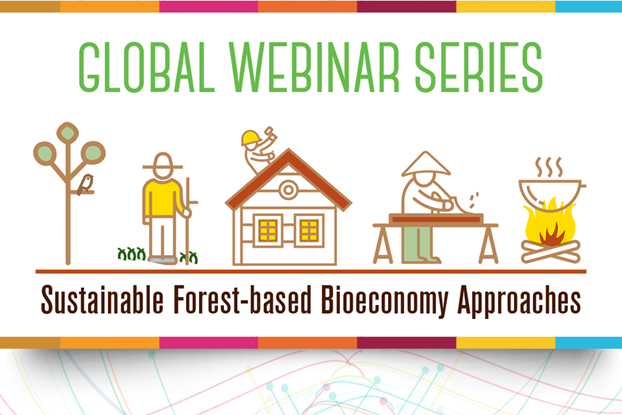
Join the Food and Agriculture Organization of the United Nations throughout 2025 for a global webinar series on sustainable forest-based bioeconomy approaches.
Upcoming webinars will address wood solutions for carbon neutrality and a sustainable bioeconomy (20 October); and bioeconomy cooperation (10 December).
For more information: here
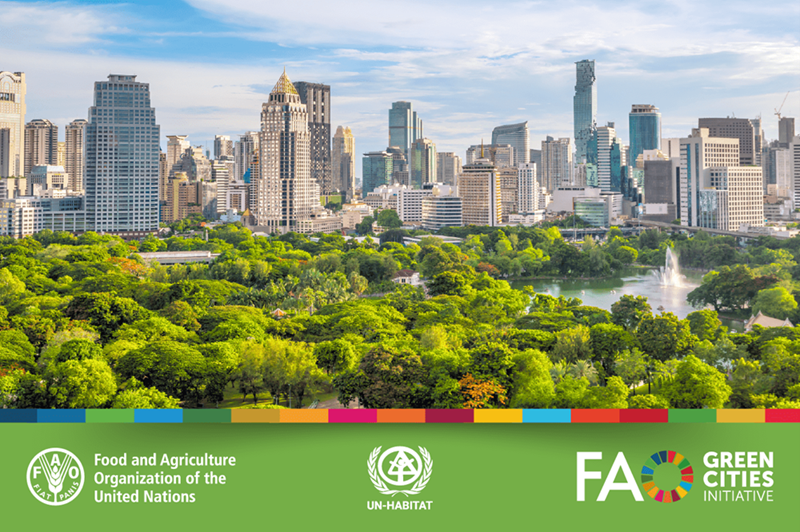
Join the Food and Agriculture Organization of the United Nations, UN-Habitat and partners for the inaugural International Green Cities Conference from 14 to 15 October 2025, a key event for all those involved in urban development for sustainable, healthy, and more resilient cities.
For more information: here
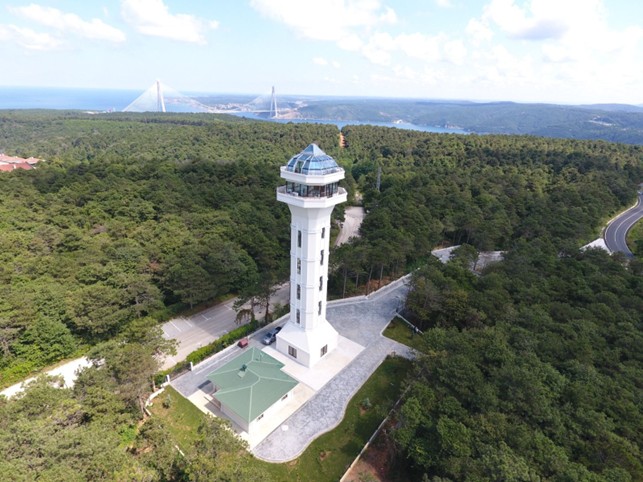
The next session of the European Forestry Commission and European Forest Week will take place in Istanbul from 22 to 25 October 2025.
Created in 1947, the European Forestry Commission is one of six Regional Forestry Commissions established by FAO to provide a policy and technical forum for countries to discuss and address forest issues on a regional basis. It meets every two years.
The 43rd Session of the Commission will be held in conjunction with the Istanbul Forest Innovation Week (20-25 October 2025).
For more information: here
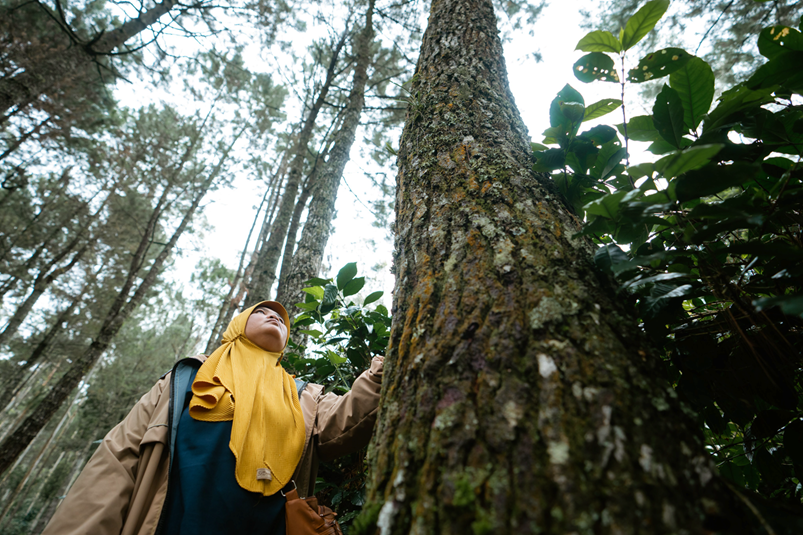
The Global Forest Observations Initiative (GFOI), together with the Indonesian Ministry of Forestry, are pleased to announce that the GFOI Plenary 2025 will take place from 21–23 October 2025 in Bali, Indonesia, and online.
To attend the plenary in person or online, please register here.
For more information: here
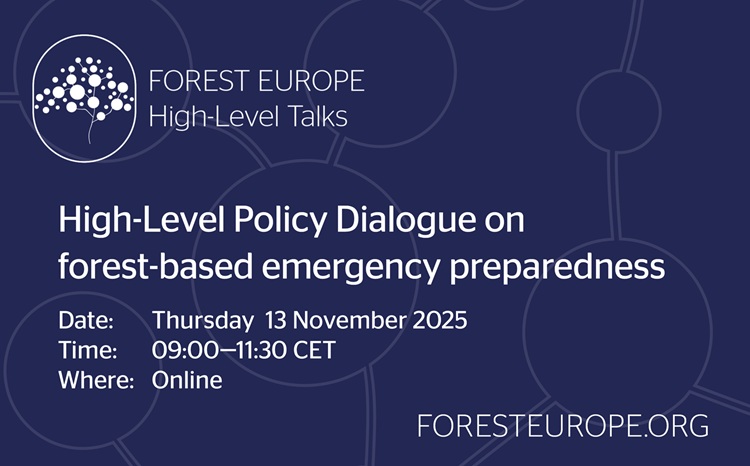
The dialogue on 13 November 2025 will showcase best practices and foster knowledge exchange among leading experts and high-level policymakers in response to today’s geopolitical challenges.
The purpose of the dialogue is to build a shared understanding of the role and importance of forests and forestry in times of geopolitical crisis, as it supports several critical societal functions, e.g. energy supply, food production and transport infrastructure. The overarching goal is to strengthen emergency preparedness among Forest Europe Signatories and Observers.
For more information: here
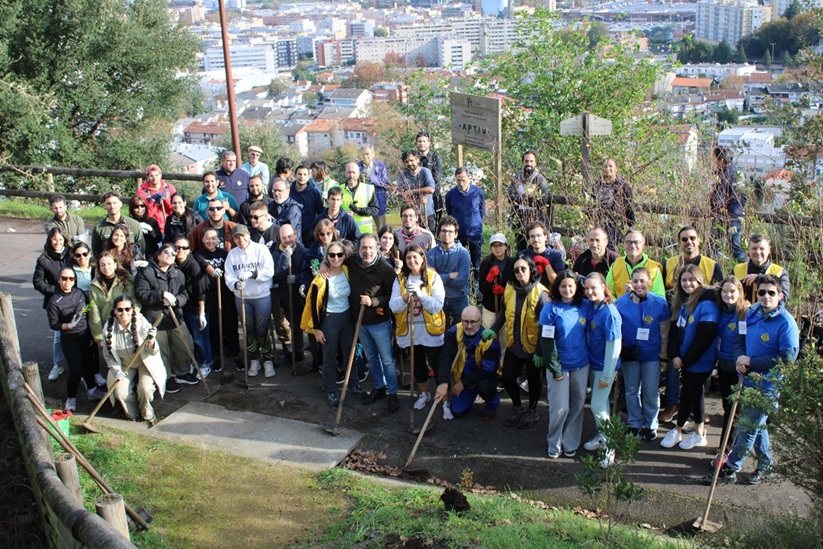
The municipality of Braga, Portugal, organizes an annual tree-planting initiative during the week of Native Forest Day (23rd November), involving citizens, students, associations, and businesses. These planting efforts have successfully established microforests, densified parks, and rehabilitated riparian galleries with thousands of trees and shrubs. Every year, the program is supplemented by other activities, such as lectures, workshops, cooking demonstrations, field trips, exhibitions, etc. - designed for diverse audiences. The ultimate goal is to ensure that the community understands, values, and prioritizes preservation of the native forest as a crucial alternative to the fast-growing monocultures that suffer severe wildfires every summer at this latitude. For more information: here
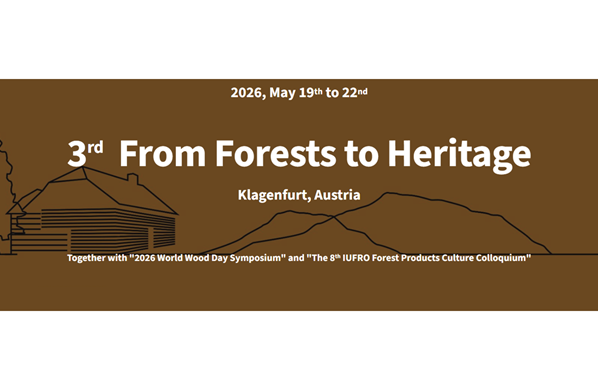
From “Forests to Heritage” is a conference designed to connect researchers studying forests, timber and wooden cultural heritage. The conference covers a wide range of fields, including forest research, forest history, architectural history, cultural heritage studies, dendrochronology, art history, forest and wood education, literature studies, and more. The in-person conference will take place in Klagenfurt, Austria, from May 19 to 22, 2026. The deadline for submission of abstracts (for both oral presentations and posters) is 31 January 2026. The scientific committee will make its decision by 28 February 2026. The event will be held jointly with the "2026 World Wood Day Symposium" and "The 8th IUFRO Forest Products Culture Colloquium". For more information: here
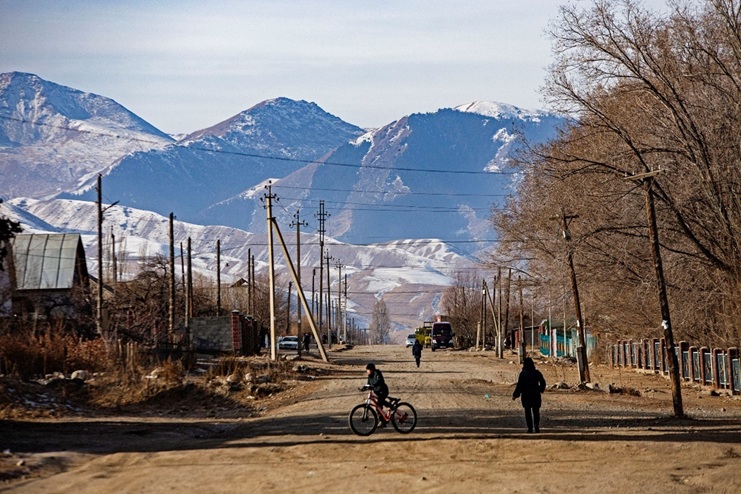
In its forthcoming episode, the FAO-Türkiye Partnership Programmes (FTPP) podcast series will present the “Improving Biodiversity and Sustainable Forestry” project. Following three episodes on other FTPP projects, the series will now focus on this transformative initiative active in Central Asia, the Caucasus, and Montenegro. Listeners will learn how the project is advancing large-scale biodiversity conservation and sustainable forest management to build climate resilience. The episode will also cover the project's outcomes, including elevating the capacity of participating countries to lead their own inclusive and sustainable initiatives through strengthened regional cooperation - contributing significantly to global climate change mitigation. For more information: here
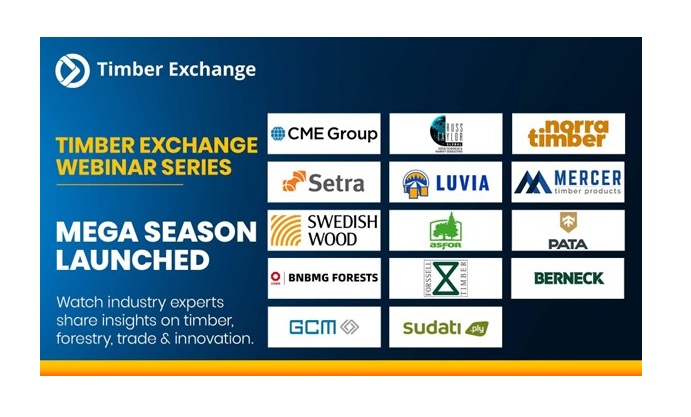
Timber Exchange hosts year-round webinars featuring leading experts on global sawn timber markets. These sessions provide both quantitative and qualitative insights to help stakeholders navigate market trends, price developments and other critical knowledge in today’s market. Leading voices have spoken in the regular Timber Exchange webinar series, including CME Group, Russ Taylor Global, Norra Timber, Setra, Luvia, Mercer International, Swedish Wood, Asfor, PATA, BNBM, Forssell Timber AB, Berneck, GCM Trade, Sudati Group, and many others, who have shared their market perspectives. The Market Data Hub complements these webinars with over 400 global market signals and price benchmarking across 30+ key markets.
For more information: here
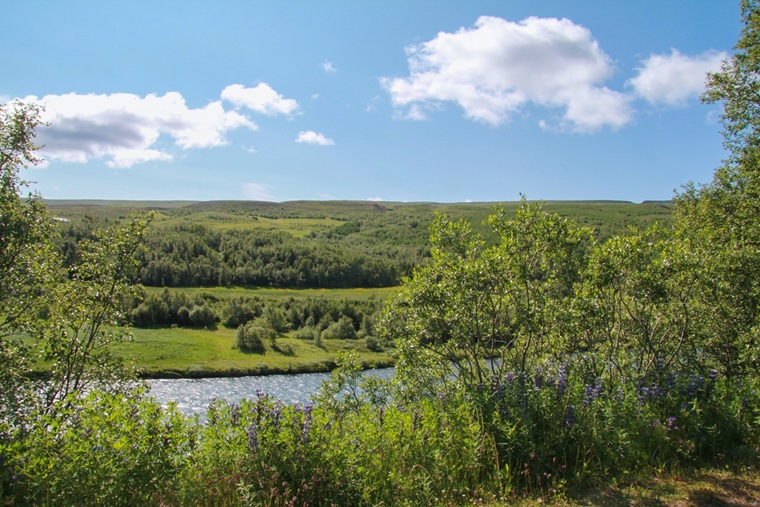
Icelandic Standards has released a draft of the standard ÍST 95, which provides guidelines for sustainable forest management. ÍST 95 outlines the fundamental criteria for sustainable forest management practices within Iceland, serving as a foundational framework for administrative, policy-related, and professional assessments of forest activities, including the registration of afforestation projects under the Skógarkolefni Forest Carbon Code.
Following an ongoing public consultation period, the standard will be subject to potential minor modifications before its final version is published by Icelandic Standards.
For more information: here
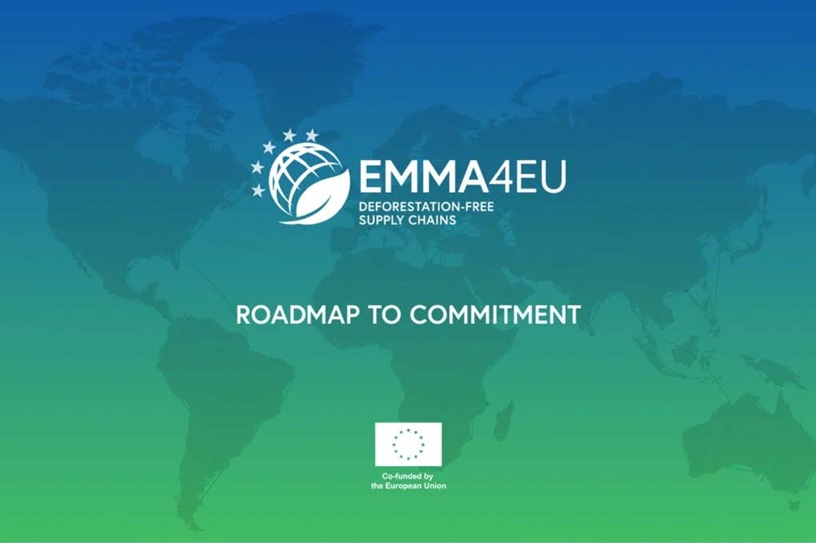
Are you navigating the challenges of the EU Deforestation Regulation (EUDR)? EMMA4EU’s Roadmap to Commitment offers a step-by-step framework for businesses, public authorities, financial institutions, and civil society. It outlines five key steps with tailored actions, guiding questions, and case studies to support the transition to deforestation-free supply chains. Developed by EMMA4EU, a project co-funded by the European Commission, it combines education, research, and knowledge exchange to raise awareness and build capacity on sustainable supply chains. Explore the interactive page or download the PDF to start your journey.
For more information: here

Since 1990, “The State of Canada’s Forests: Annual Report” has been a trusted source on Canada’s forest management. The 2024 edition highlights:
- Sustainability indicators – tools used to define, assess, monitor and report trends, and progress toward sustainable forest management;
- A story of change – how Canadian forest management practices have evolved;
- Climate action – the important role of forest products in fighting climate change;
- 125 years of milestones – a timeline of key events in Canada’s forest sector.
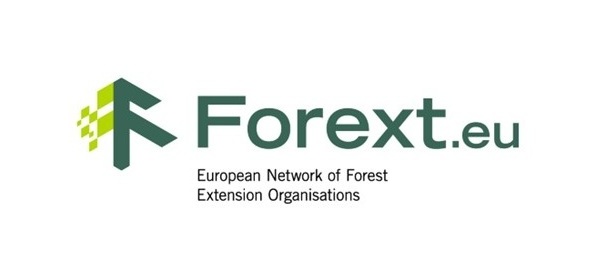
The European Network of Forest Extension Organisations (FOREXT) aims to help its members build their capacities in training and education of private forest owners, thereby improving the development of forest extension services across Europe.
FOREXT supports its members through international collaboration, focusing on the development of support and advisory skills, tools, and services. This is achieved through the exchange of knowledge, experience, expertise, best practices, and developing and implementing relevant European projects. Learn more about the FOREXT network by reading their 2024 Annual report!
For more information: here
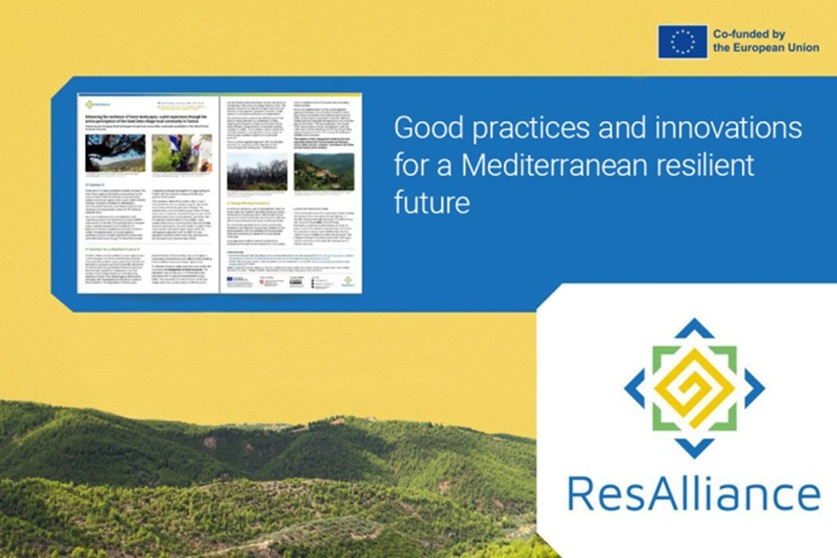
The EU ResAlliance project is helping Mediterranean farms, forests and agroforestry systems adapt to climate change by sharing practical knowledge across borders. The project has gathered 120 good practices, available in six languages, covering solutions to hazards such as drought, flooding, wildfires, and pests. These practices, hosted on the EU-FarmBook platform, can be filtered by sector, solution type, hazard or actor. ResAlliance also offers videos, an online course and community forums, fostering exchange among its 2,000 members. By bridging knowledge gaps and linking farmers and foresters, the network provides tools and inspiration to strengthen resilience in Mediterranean landscapes.
For more information: here
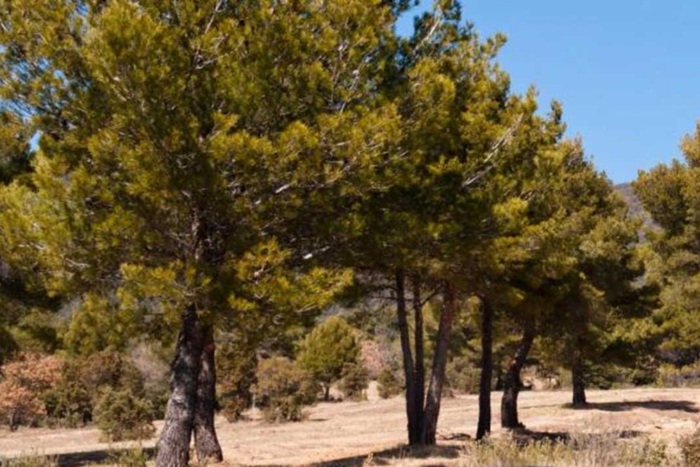
An international team of 30 scientists, coordinated by INRAE and the European Forest Institute, has created the largest open-access database of Mediterranean trees. The inventory identifies 496 species and 147 subspecies across 39 territories in North Africa, the Middle East and southern Europe, including several shrubs recognised as trees for the first time.
The database provides information on extinction risks and genetic diversity, crucial for conservation and restoration. Published in Current Forestry Reports, the findings highlight knowledge gaps and call for stronger collaboration to support sustainable management and protection of Mediterranean forests.
For more information: here
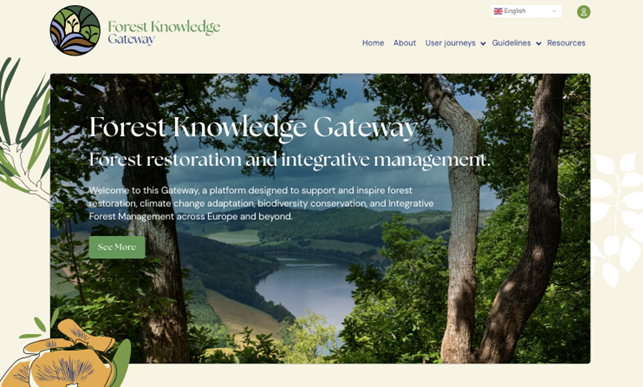
Meet forestknowledge.eu, a curated and knowledge-based platform designed to support forest restoration, climate change adaptation, and integrative forest management across Europe and beyond.
Led by the European Forest Institute, the Gateway is developed through the EU-funded SUPERB and TRANSFORMIT projects in close collaboration with a wide range of forest research and practice organisations and key stakeholders. The Gateway hosts a growing library of resources and tailored user journeys for restoration planners, policy actors and financers. To share your knowledge on this platform, please contact gesche.schifferdecker@efi.int.
For more information: here

The Food and Agriculture Organization of the United Nations has unveiled the first major redesign of its open-source forest monitoring platform, Open Foris, since its launch over 15 years ago.
Improved usability for a wide range of audiences, clearer navigation, and structured pathways based on user needs and expertise for countries and organizations to collect, analyse, and manage forest data.
For more information: here
The EUFORGEN website hosts a growing collection of videos that showcase the role of forest genetic resources in conservation and resilience. This dedicated section features animated films, short reports and documentaries that explain why genetic diversity is central to healthy forests.
Among the highlights are a video marking 30 years of EUFORGEN’s achievements, a film on afforestation in Iceland, and a story from Greece about a unique black pine population on Lesvos Island. Together, these videos provide accessible insights into the science and stories behind Europe’s forests.
For more information: here
Soils are fundamental to people and the planet, and the forthcoming European Union Soil Monitoring Law will provide a common framework to strengthen resilience and reduce contamination risks. Yet forest soils remain underrepresented in monitoring, with gaps in sampling practices and biodiversity assessment. The Horizon 2020 project HoliSoils has developed a harmonised methodology to address these challenges. As a consortium partner, the European Forest Institute has highlighted these results in a new policy brief, which also sets out recommendations for governments and policymakers to improve forest soil monitoring and ensure the effective implementation of the Soil Monitoring Law.
For more information: here
A new OptFORESTS policy brief explores how Europe’s Forest nurseries can contribute to meeting the European Union’s goal of planting three billion additional trees by 2030 under the Green Deal. Scaling up nursery production will require better seed provision, careful species selection, and investment in infrastructure, particularly in regions reliant on natural regeneration.
The brief also identifies structural challenges such as rising costs, variable seed quality, and uneven regional capacity. It calls for a coordinated European approach and targeted support to strengthen nurseries, ensuring climate-resilient, biodiverse forests for the future.
For more information: here
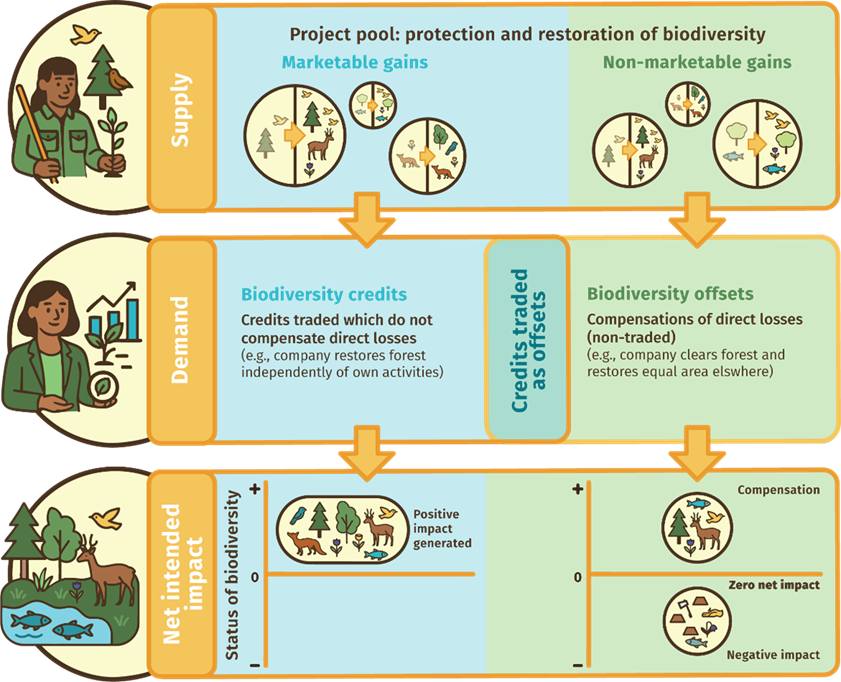
At present, the emerging biodiversity credit market is characterised by a diverse and uncoordinated landscape, with multiple methodologies and indicators being developed and promoted. However, the fast-growing number of approaches and broad interest may be moving quicker than the development of clear concepts, leading to confusion about quality, consistency, and impact. EFI’s new Policy Brief looks at the four critical challenges of commensurability; baselines and additionality; permanence and leakage; and governance and integrity. The brief also addresses what key decision-makers, such as policymakers, corporate decision-makers, bankers and researchers can do in response to the challenges.
For more information: here

The article “Improved Estimates of Biomass Expansion Factors and Root-to-Shoot Ratios: An Approach for Different Forest Types Across a Climatic Gradient in Brazil” authored with the support of Ibá, was recently published in the scientific journal Global Change Biology. The study is the result of a partnership between Ibá, the Silvicarbo programme and the Institute of Forestry Studies and Research (IPEF). Drawing on primary data from different regions, the research estimates biomass expansion factors (BEF) and the root-to-shoot ratio (R) - key parameters for generating information on forest biomass and carbon stocks. These findings contribute to more accurate greenhouse gas (GHG) inventories. For more information: here
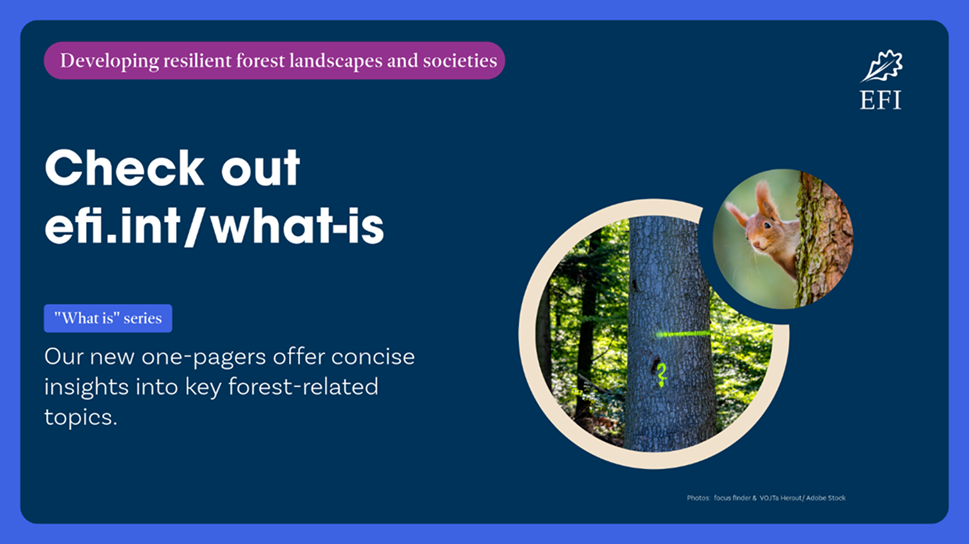
EFI’s new “What is” series offers concise insights into key forest-related topics. Each one-pager provides a clear and accessible overview of the topic at hand rather than a strict definition, helping readers grasp the essence of complex subjects at a glance.
The series, grounded in both scientific research and expert insights, also briefly addresses the status of knowledge and sometimes provides in-depth insights into what is not yet known. The series is compiled by leading scientists and experts on each topic.
For more information: here
The EU-funded OptFORESTS project has mapped the complex network of stakeholders influencing Europe’s Forest genetic resources and forest reproductive material. Through participatory mapping and systems thinking, the study identified over 50 actor types, including policymakers, researchers, managers, NGOs, and nursery owners. It reveals conflicts and opportunities for collaboration among those working in conservation, reproductive material production and protected forests. The research shows how governance structures shape these interactions and calls for inclusive approaches and stronger cooperation to protect genetic diversity and boost forest resilience in the face of climate change and biodiversity loss.
For more information: here
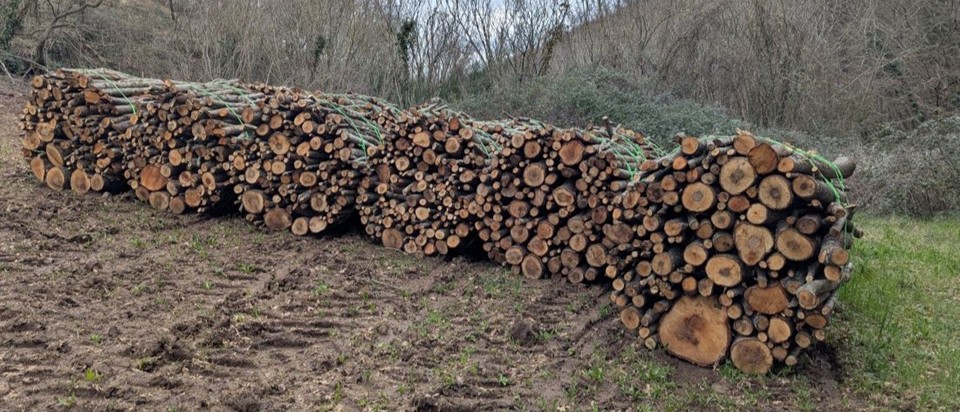
Experts from the Food and Agriculture Organization of the United Nations and partners have successfully pioneered new methods for estimating wood fuel removals and wood charcoal production.
For more information: here
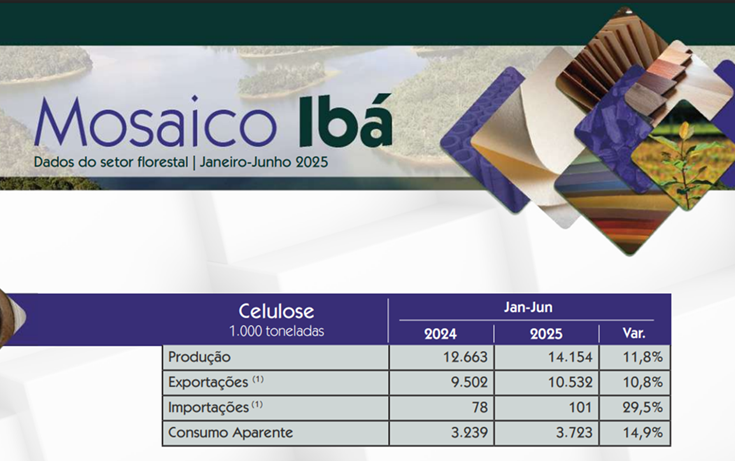
Brazilian cultivated tree exports grew 5% in the first half of 2025, totalling US$ 7.9 billion in foreign exchange.
This data is presented in the new edition of Mosaico, a quarterly bulletin produced by Ibá (Brazilian Tree Industry).
For more information: here
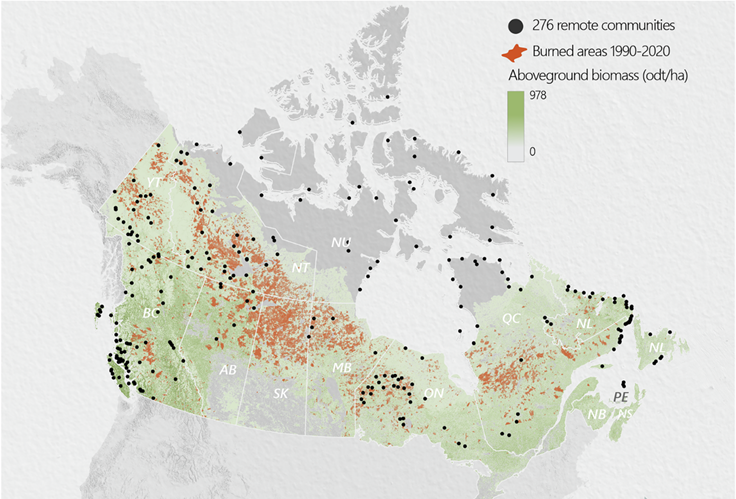
As climate change accelerates, wildfires are intensifying worldwide. In 2023, Canada faced its most devastating season on record, with more than 15 million hectares burned - seven times the national average - and thousands of residents in remote and rural communities forced to evacuate. These same communities also struggle with energy insecurity, relying on costly, polluting, and unreliable diesel generators. A study led by Natural Resources Canada offers a dual solution: using biomass from wildfire fuel treatments to generate renewable bioenergy. This innovation aims to reduce fire risks, strengthen Canada’s bioeconomy, cut diesel dependence, and advance progress on clean energy (SDG 7) and climate action (SDG 13). For more information: here
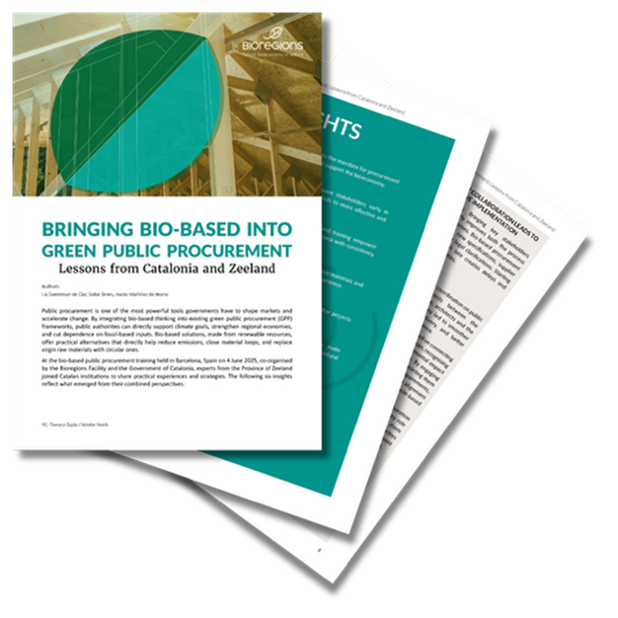
Public procurement is one of the most powerful tools governments can use to shape markets and accelerate change. Embedding bio-based thinking into green public procurement helps align systems to deliver on climate, circularity, and regional development goals.
This report presents six insights about bio-based public procurement. It demonstrates, through case studies of Catalonia and Province of Zeeland (Netherlands), that with political support, collaboration, the right tools, and strong monitoring, public procurement can become a powerful driver of change.
For more information: here
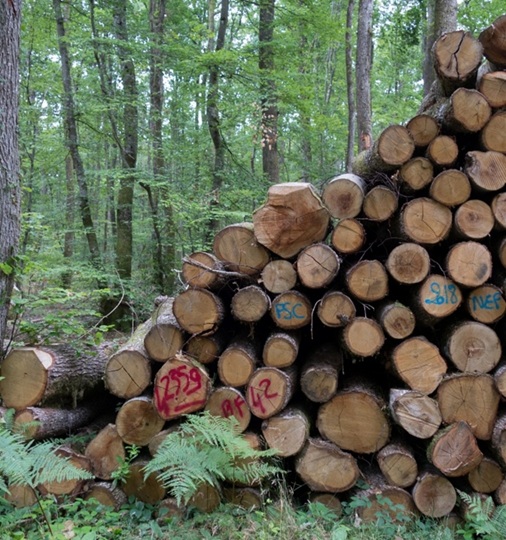
A study across 28 European countries suggests that forest certification boosts economic performance. Published in Frontiers in Forests and Global Change, the research reveals that certified forests generate higher revenues, with countries like the Netherlands and Czech Republic showing particularly high net economic gains.
Beyond financial benefits, certification also reduces environmental, social, and reputational risks, opening doors to sustainability-driven markets and aligning with EU policies like LULUCF (Land Use, Land Use Change, and Forestry).
For more Information: here
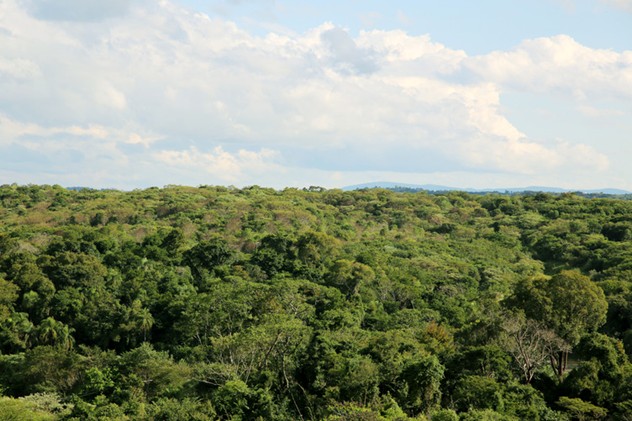
Marc Jessel, Chief System Integrity Officer at FSC, recently shared reflections in a commentary published on Mongabay regarding the long-term impacts of deforestation on Indigenous and local communities. He noted that such impacts may persist even when the responsible companies are no longer part of certification schemes.
FSC has introduced its remedy framework, which aims to support meaningful engagement with affected communities and promote accountability.
For more information: here